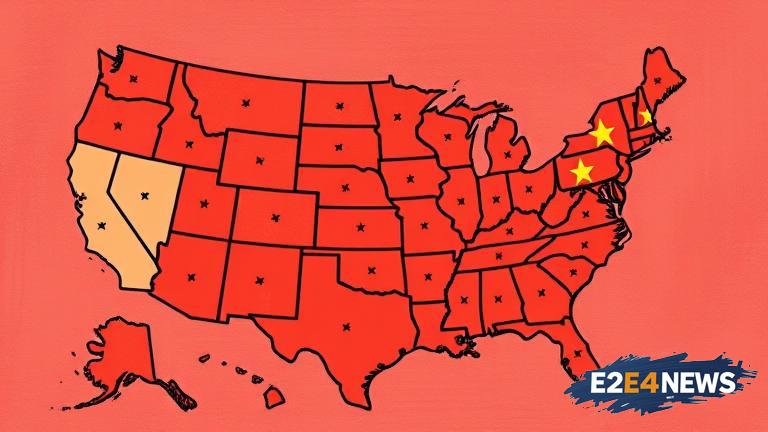The Chinese Communist Party (CCP) has been increasingly exerting its influence globally, and the US is no exception. However, states across the country are now taking the lead in combating this influence, with a range of initiatives aimed at protecting economic and educational interests. From investing in domestic industries to promoting transparency in academic collaborations, these efforts are designed to prevent the CCP from gaining a foothold in critical sectors. One key area of focus is the protection of intellectual property, with states implementing measures to prevent the theft of sensitive technology and trade secrets. Additionally, there is a growing emphasis on promoting American values and democratic principles, particularly in the education sector. This includes initiatives to increase transparency around foreign funding of academic research and to prevent the spread of CCP propaganda on university campuses. Furthermore, states are also working to strengthen ties with like-minded countries and to promote international cooperation on issues related to CCP influence. The CCP’s human rights record is also a major concern, with states seeking to hold the party accountable for its actions in Xinjiang and other regions. The use of forced labor, surveillance, and censorship are all major issues that states are seeking to address through their initiatives. Moreover, the CCP’s growing military presence is also a concern, with states seeking to strengthen their own defense capabilities and to promote regional stability. The economic implications of CCP influence are also being closely watched, with states seeking to prevent the party from gaining control of critical infrastructure and industries. The role of Chinese state-owned enterprises is a particular concern, with states seeking to prevent these companies from acquiring sensitive assets and technology. The US federal government is also playing a key role in combating CCP influence, with a range of initiatives aimed at promoting American competitiveness and protecting national security. However, states are taking the lead in many areas, with a focus on building strong relationships with local communities and promoting economic development. The importance of state-level action cannot be overstated, as it allows for a more nuanced and targeted approach to addressing CCP influence. By working together, states can share best practices and coordinate their efforts to maximum effect. The long-term implications of CCP influence are also a major concern, with states seeking to prevent the party from shaping the global agenda and promoting its own values and interests. The role of international institutions is also critical, with states seeking to promote reform and transparency in organizations such as the World Health Organization and the United Nations. Ultimately, the fight against CCP influence will require a sustained and coordinated effort from states, the federal government, and the private sector. By working together, the US can promote its values and interests and prevent the CCP from gaining a foothold in critical sectors. The future of American competitiveness and national security depends on it. States are also investing in initiatives to promote media literacy and to prevent the spread of disinformation, particularly on social media platforms. The CCP’s use of propaganda and disinformation is a major concern, with states seeking to promote fact-based reporting and to prevent the manipulation of public opinion. The importance of protecting American values and democratic principles cannot be overstated, as these are the foundation of the country’s strength and prosperity. By promoting these values and principles, states can help to prevent the CCP from gaining influence and promote a more just and equitable society.
